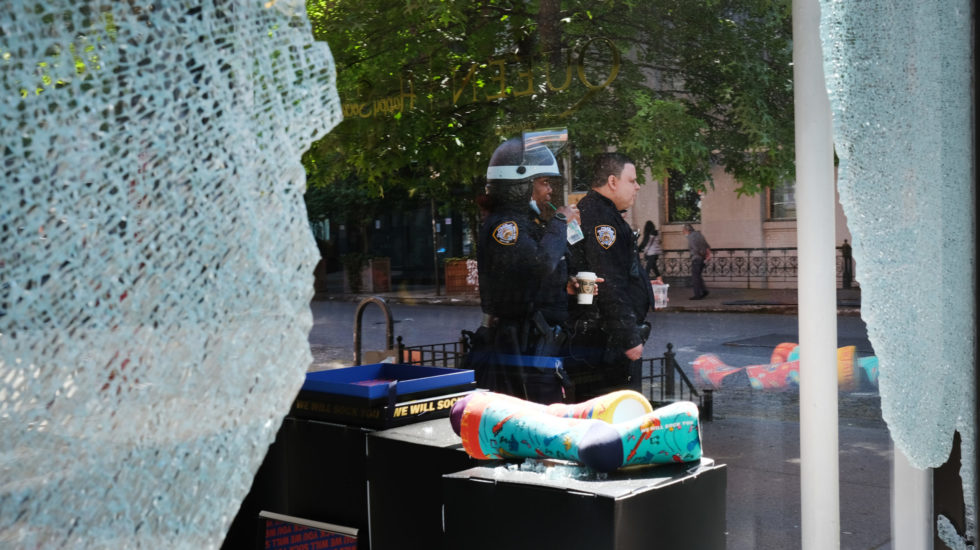Rather than acknowledge the real pain over the death of another African-American at the hands of the police, the president is trying to divert the blame for the chaos that is engulfing the nation to a fringe left group of anarchists, known as antifa, or anti-fascists.
Donald Trump said on Sunday that he would designate antifa as a terrorist organization. That’s not going to happen. Politico writes there are two problems with that:
“First, he doesn’t appear to have the legal authority to do so. And second, it’s by no means clear the loosely defined group of radical activists is an organization at all.“
“…Under current law, the State Department can designate foreign organizations as terrorist groups. But the U.S. has no domestic terrorism statute, and the FBI uses other legal authorities to prosecute domestic terrorism here.”
The Washington Post writes:
“Protests — especially those of the scale seen in the United States in recent days — are complicated affairs, often drawing participants with a range of political ideologies and motivations, including some with bad intentions. But some observers said they see in Trump’s targeting of antifa an attempt to shift focus away from what sparked the demonstrations: outrage over killings of black people by police.
“The idea of antifa ‘masterminding’ what’s happening over the last few days — if you know anything about the subject — is ludicrous,” said Mark Bray, a historian and author of the 2017 book “Antifa: The Anti-Fascist Handbook.” “There’s a real investment on the part of the administration and their allies in portraying these recent protests as organized from the top down, and not a spontaneous outpouring of rage.”
And as national security analyst Peter Bergen writes for CNN, there’s this little thing called the First Amendment:
“Thanks to the First Amendment, the US government has historically avoided designating domestic groups on both the left and right as terrorist. Belonging to such groups is consistent with the legitimate exercise of your First Amendment right to freedom of speech and belief — whether you are a white supremacist or an environmental activist.Of course, should an American citizen commit a crime in service of her extremist beliefs she can be prosecuted for that crime, but she can’t be prosecuted for merely belonging to the group, no matter how objectionable its views might be.“



